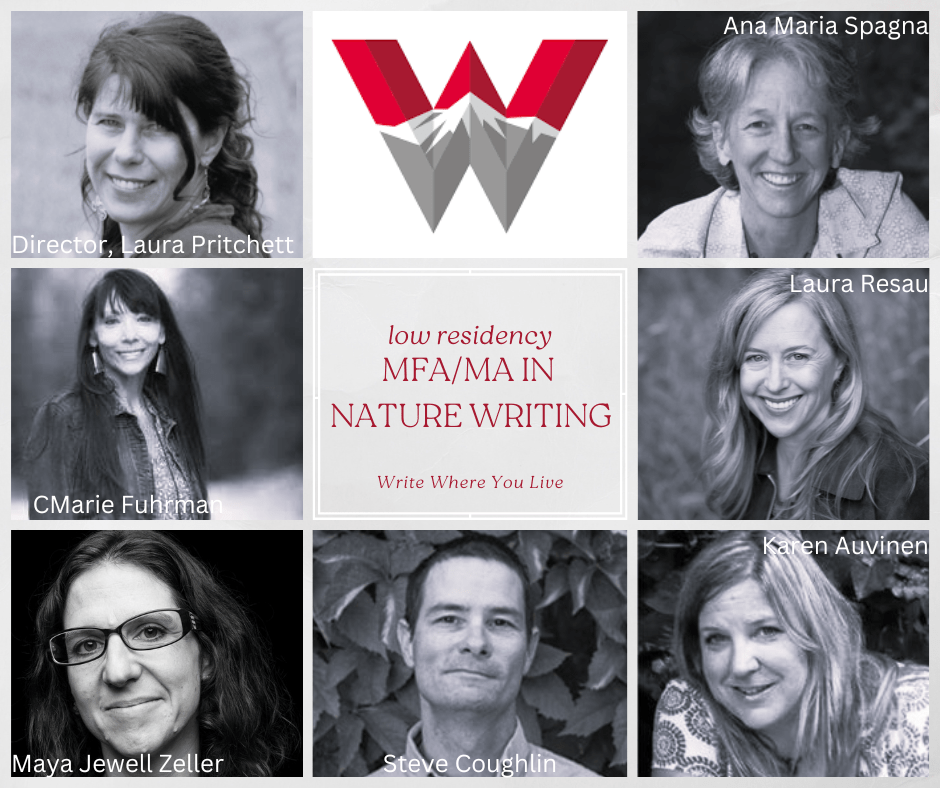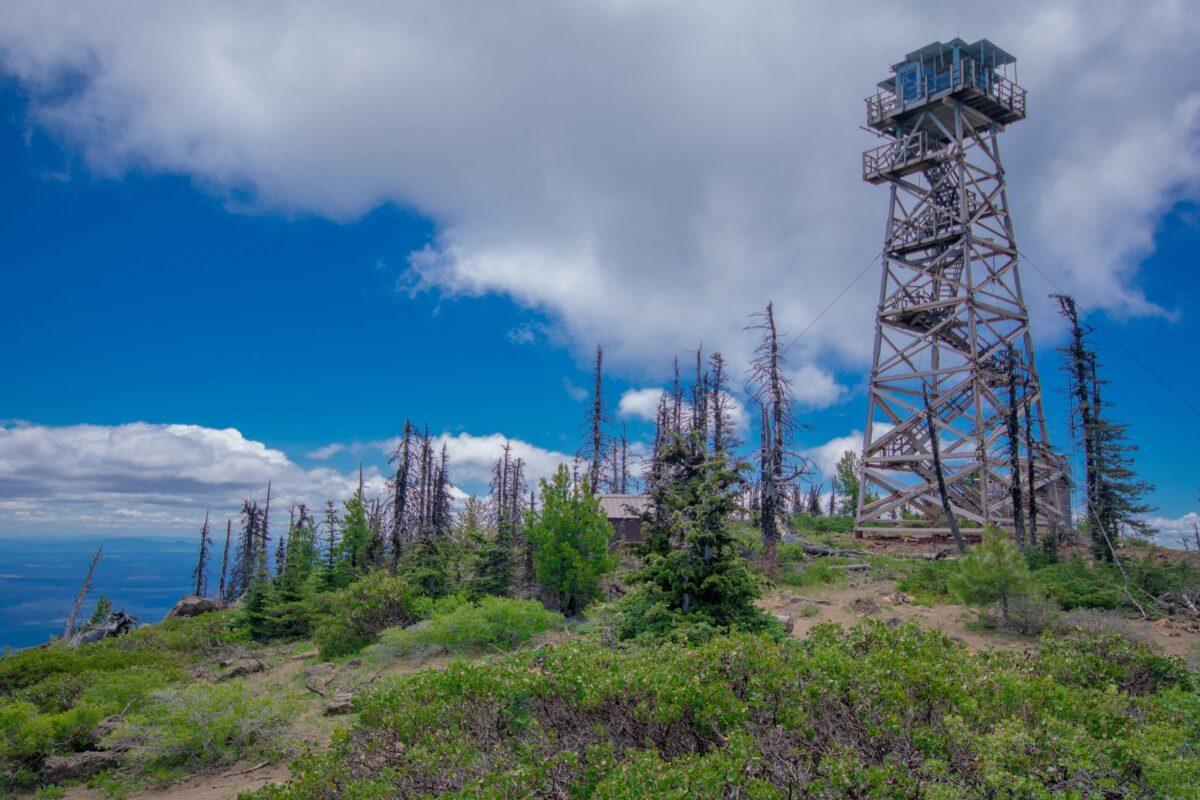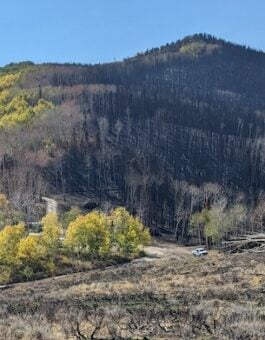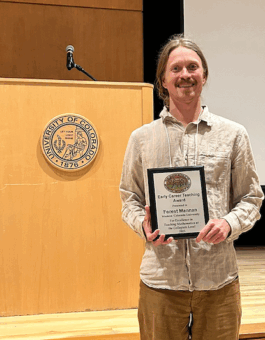One professor reflects on the unique benefits of a low-residency program
Evonne lives for part of the year in an Oregon fire lookout, and since we meet as a class weekly on Zoom, we’ve all seen snippets of her life, including the dizzying moments when she leaps up to do a 360 to scan for fires while holding her tablet. As a professor in the Graduate Program in Creative Writing’s Nature Writing concentration, as well as its director, I can attest to the joys of low-residency education, wherein we can all Zoom in from our unique places. In this case, it’s extra unique. We’re treated to a bit of a roller-coaster tumble of distant trees and skies before she settles back down, her smiling face back on our screens.
Boring classes, these are not.
This Graduate Program in Creative Writing with a Nature Writing concentration is one of only a few in the country, and possibly the only one that has a collaboration with a press — one manuscript from a current student or alumni is published each year by Western Press Books. There are also internships, a new ecopoetic track, and fantastic faculty. But perhaps the thing I love most about this program is our weekly Zoom. I’ve come to believe that a “packet-style” approach to MFA programs is not the best available approach. Instead Western Colorado University has forged a new path: Zooms coupled with workshops that re-create the brick-and-mortar experience, but with the added benefit of being low residency so students and faculty can live anywhere.
Including fire towers.
And interestingly, this informs our content quite a lot. Whether it’s from a ranch in Colorado, a beach in California, a suburb in Florida, an off-the-grid house in the Bahamas, or a fire lookout in Oregon, we can bring our lives to one another. As a result, we learn tidbits about lookout life—how Evonne does dishes with minimum water use, since water needs to be carried in; or visits from/interactions with the mice and chipmunks; or how her “lookout buddies” hike in to bring her food and mail.
It’s true that since this is an MFA program in Nature Writing, there are a lot of outdoorsy people who Zoom in from all sorts of interesting places, such as the back of vans and hotel rooms while they’re enroute to somewhere new. But it’s also full of parents and grandparents and those who stay put.
They do have one thing in common, though: given their self-identification as people who care about the environment, on day one there is already a camaraderie and a shared emotional foundation. Climate chaos is no stranger to anyone who signs up for such a program, for example, and so they show up with the grief, anger, sorrow, resilience, and vulnerability appropriate to our times. That is why community is so essential.
One of our overriding questions is: how do we write through climate chaos? Within this? Despite this? In front of this, in the midst of this, for the future this?
We do it by staying in community. Literary citizenship is a real thing, and it allows us to hold and sit with the situation; it allows us the support we need to not avert our gaze from the truth.
We discuss the importance of solutions-based journalism, the difference between advocacy writing versus lyric writing, the evolution of nature writing, the techniques of fiction and nonfiction and poetry. Above all else, we talk about the power of story.
New stories. Imaginative stories. Brave stories. Complex stories. Stories that embrace our problematic history. Stories that fashion new narratives about ecological wisdom and compassion for the planet and the future.
And these students are capable of telling them. We all are.
As these students and I gather on Zoom, and as our fingers click across keyboards, I do believe we will be able to see our way into the future, one story at a time. Particularly if we are encouraged by a cohort of like-minded individuals.
That is what teaching in a low-residency program keeps teaching me: We need new storytellers, and we need community — no matter where we are.

Author Credit: Laura Pritchett
Photo Credit: Courtesy


